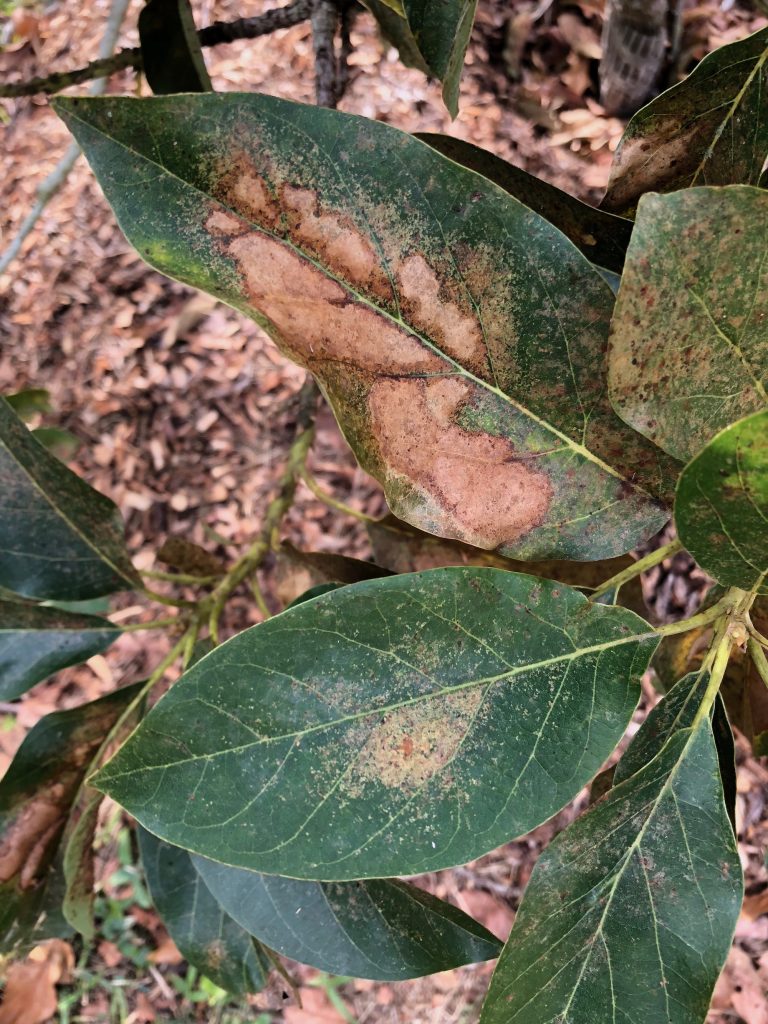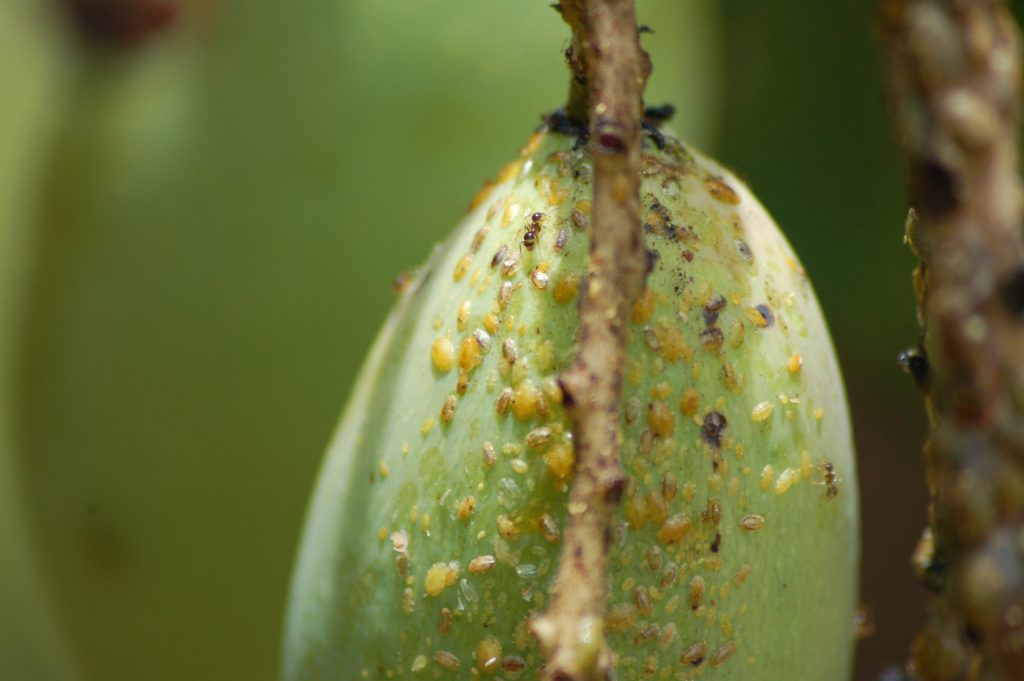There are many types of tropical fruit that can be grown with ease in south Florida, but even the heartiest types of trees sometimes have issues that can affect their growth. The following problems are quite common and usually fairly easy to deal with.

Problem: Severe leaf damage on avocados
Diagnosis: The spots shown here are very typical on avocados just before they bloom in the winter and early spring. They are caused by avocado lace bugs feeding under the leaves.
Solution: The trees will soon drop all of their lower leaves, so control of this pest is unnecessary.
Problem: Mummified sugar apple
Diagnosis: Small fruit are attacked by the annona seed borer that lay eggs inside the fruit. The opening in the fruit allows the fruit to in turn be attacked by fungi and become mummified.
Solution: Remove all damaged fruit, bag and dispose of it. Do not leave the fruit under the tree as the wasp’s life cycle needs to be broken. Small fruit can also be bagged to prevent the annona seed borer from laying eggs in the fruit.
Problem: Flowers on jackfruit turn black and fall off and no fruit appears
Diagnosis: Jackfruit trees have separate male and female flowers on the same tree and only the female flowers will set fruit. Young jackfruit trees have only male blooms for the first few years, so the male flowers appear and then turn black and wither away.
Solution: Because jackfruit are so large, the tree needs to get up to size before it can hold fruit. Female flowers will appear when the tree is large enough to fruit. Simply waiting for the tree to grow will result in female flowers and eventual fruit. This can take three to four years.
Problem: Black soot on leaves of fruit tree
Diagnosis: This is sooty mold, a fungus, caused by the feeding of sucking and piercing insects like scale, mealybug, or aphids (see above).
Solution: To get rid of sooty mold, you do not treat the fungus, you treat the insect. Usually natural predators will take care of the pest over time, but you can use horticultural oil or soap if you do not want to wait for the predators to do their job.
Problem: Small flat or bumpy insects on mango leaves
Diagnosis: These are scale insects and they can feed on mangos, as well as many other tropical fruits. Scale can look like the ones pictured here, or take many other forms and colors. They feed by sucking on the plant and often drip honey dew which leads to the formation of sooty mold.
Solution: If left alone, natural predators will find and attack this type of insect. If you cannot wait for nature to take its course, horticultural oil or soap is effective when dealing with this pest. Be careful not to burn your plant by spraying oil during a sunny portion of the day.

 0
0
